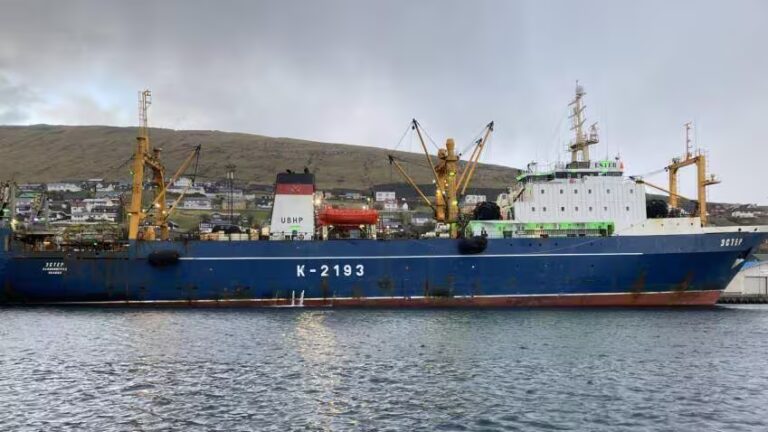The Faroe Islands government has presented a new bill that would enable sanctions against Russian vessels, following the EU’s decision to blacklist two Russian shipping companies accused of espionage. The move marks a significant shift in the islands’ long-standing fisheries cooperation with Russia, a relationship that dates back to the 1970s.
Proposed legislation aligns with EU sanctions
Minister for Trade and Foreign Affairs (landsstýrismaður í vinnu- og uttanríkismálum) Sirið Stenberg announced that the draft law will be debated in the Lagting on 28 August. If approved, it will provide the Faroe Islands with a legal framework to ban Russian vessels linked to Murman Sea Food and Norebo JSC from accessing Faroese ports and fishing waters. These companies were sanctioned by the EU in May for allegedly supporting Russian intelligence operations targeting undersea infrastructure.
Stenberg underlined that the initiative aims to bring Faroese policy in line with both the EU and Norway, which already barred ships from the same companies earlier this summer. Estimates suggest that between four and seven Russian vessels could be excluded under the new law.

Russia warns of risks to cooperation
The Russian ambassador to Denmark, Vladimir Barbin, rejected the allegations against Murman Sea Food and Norebo, calling the sanctions campaign “based on unfounded speculation.” He warned that the decision could jeopardise the bilateral fisheries agreement that has underpinned cooperation between Moscow and Tórshavn for decades.
Barbin stressed that fisheries cooperation has “always been kept separate from confrontational politics” and described the Faroese proposal as a threat to the continuation of joint arrangements.
Domestic debate over fisheries agreement
The proposal has sparked domestic criticism. Former fisheries minister Jacob Vestergaard (Folkaflokkurin) questioned the proportionality of banning Russian companies, while the chairman of the Faroese Shipowners’ Association, Hanus Hansen, warned that such a step could endanger the annual fisheries deal with Russia, vital for Faroese exports.
Stenberg acknowledged these concerns but argued that the Faroe Islands must ensure legal readiness to respond to hybrid threats and align with international partners. She noted that while Russia has so far refrained from retaliatory measures, the risk of counter-sanctions cannot be ruled out.

Likely approval in Lagting
According to Faroese media Sosialurin, there appears to be enough parliamentary support to pass the bill, with backing expected from both the conservative Sambandsflokkurin and the centrist Miðflokkurin. If adopted, the government is expected to quickly apply sanctions against the two Russian shipping companies, mirroring Norway’s response.
The outcome of the Lagting’s first debate on 28 August will determine whether the Faroe Islands join the broader European effort to restrict Russian maritime activity, a decision that could redefine the balance between security concerns and economic dependence in the North Atlantic.






